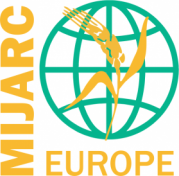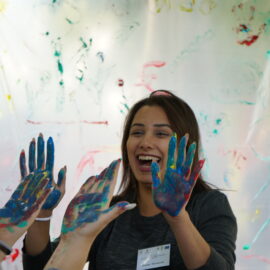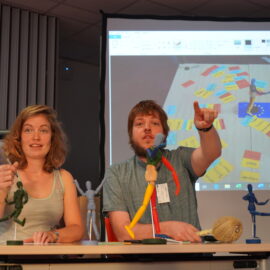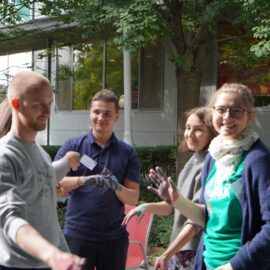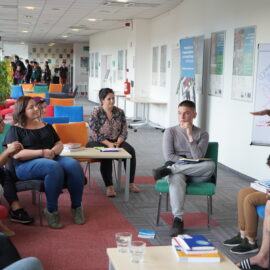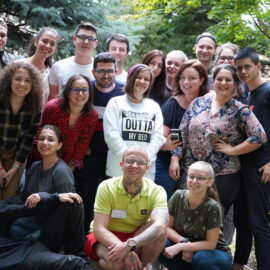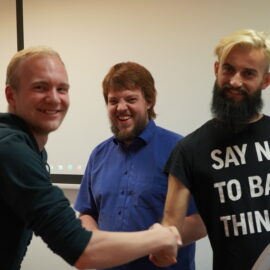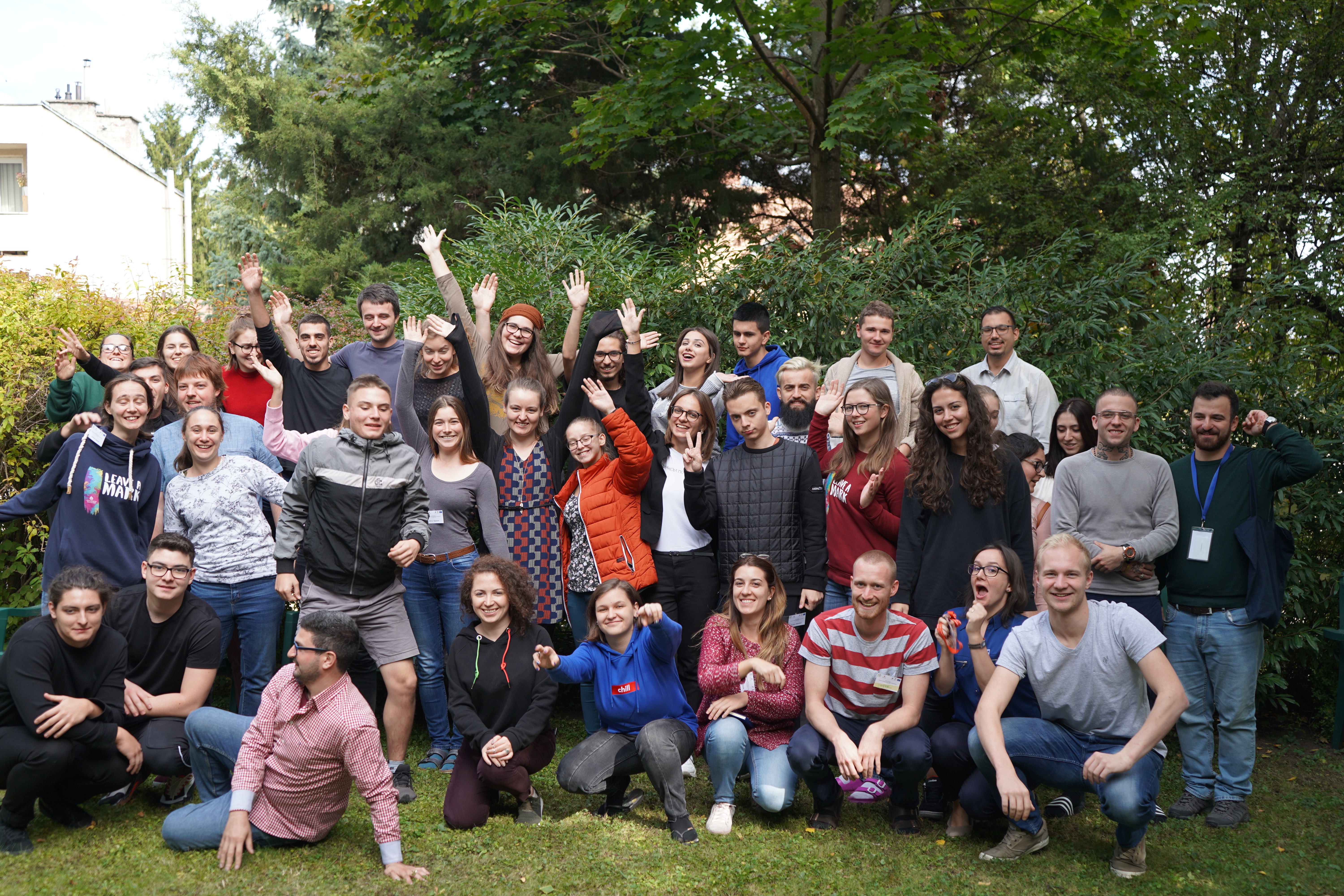
The study session ”I, Youth Advocate” was a double study-session co-organised by the International Movement of Agricultural, Rural and Catholic Youth – Europe (MIJARC Europe) and Don Bosco Youth Net (DBYN). It was held between 7th – 10th October 2019 at the European Youth Centre in Budapest (EYCB).
The study session was based on non-formal education methods and used a mixture of the methodologies used by the two host-organisation. The “See-Judge-Act” methodology of MIJARC Europe and the Don Bosco method promoted by DBYN. As MIJARC Europe and DBYN are both faith-based organisation, sessions on spirituality were an important part of the programme.
The study session was structured on two main phases: an e-learning phase and the residential phase of the study session.
Online learning phase
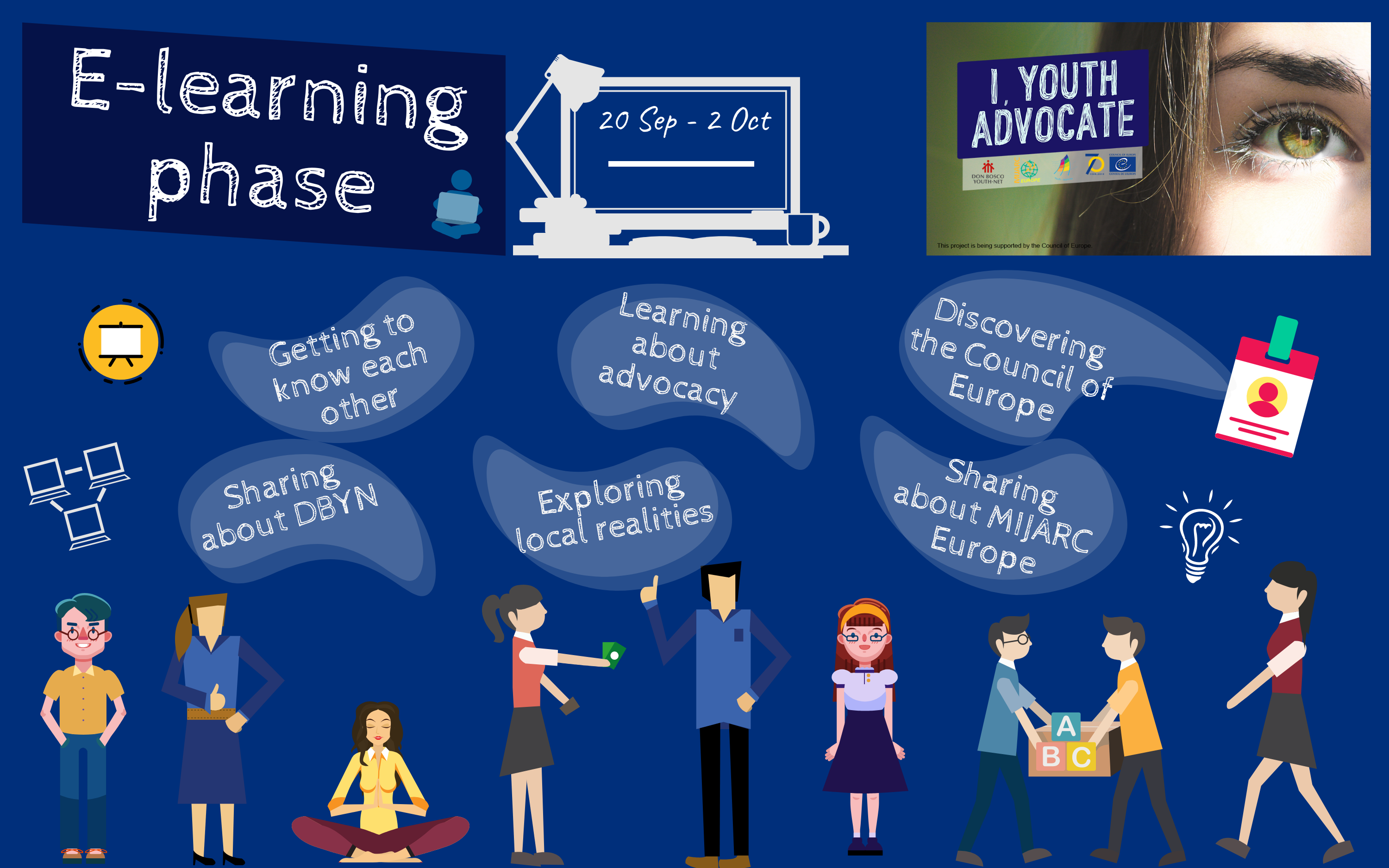 The online learning phase took place between 20th September – 2nd October. It was hosted on the Moodle platform and it included ten days of study and a time investment of 2 hours per module.
The online learning phase took place between 20th September – 2nd October. It was hosted on the Moodle platform and it included ten days of study and a time investment of 2 hours per module.
More details about the online learning phase here: E-learning phase
Residential phase – General flow
The study session lasted only four days therefore the flow was designed around the principle of efficacy, aiming to create the appropriate atmosphere quickly and to build the spirit towards in-depth discussions and concrete actions on the topic of advocacy. 34 participants, 4 trainers and several experts from all over Europe came together to learn and teach about advocacy based on human rights and policies. The study session took place in the European Youth Centre of Budapest, which offered us both financial and content based support. Furthermore as the European Youth Centre stands for “Access to Rights” and “Youth Participation” their policy framework was an ideal basis for the learning programme.
Following the SEE-JUDGE-ACT methodology, the first day gave room for the SEE-phase, introducing participants to the rationale of the study session, the organisations involved and the objectives of the session and connecting the online learning phase with the residential one. Once the participants got into the “advocacy mood” and reached common ground on the key concepts of youth advocacy and youth advocates, a process of mapping local realities and transferring them to the European level was initiated.
The JUDGE-phase was built on two dimensions: (i) tools and instruments and (ii) advocacy skills. On the second day the participants learnt about the 9 steps of the advocacy circle and worked with it on different topics at local, national and European level. After that, there was an information session about the European Youth Forum (YFJ), given by Silja Markkula, board member of the YFJ. The participants learned about the human rights-based approach of the YFJ, about rights holders and duty bearers and also about the difference between policy and politics. A clear example that was given was about how the YFJ had a collective complaint/a legal case against Belgium on unpaid internships. This campaign was very successful and it resulted into a ban imposed by the European Parliament on having unpaid internships. The tool and instruments session block also included presentations of policy instruments used at European level by the Council of Europe, the European Union and policy instruments of the two organisations – MIJARC Europe and DBYN.
On the third day, the advocacy skills identified by the participants were pursued through a complex simulation game, set at the heart of the decision-making process of the European Union. It began with an explanation about the Council of the European Union and its president, the European Council and its president and The European Commission. This was needed to understand what the game was all about and to develop a strategy to play it. To play the game, all the participants were given a fictive role and were divided into four groups: the Commission, the European Parliament, the Council (of the European Union) and interest groups. While playing the simulation game, the participants learned a lot about the legislative procedures that are used in the given organisations and also about lobbying, setting up meetings, whom to address and also about listening to the opinions of interest groups and other parties.
During the ACT-phase the focus was on transferring the learning points to organisation level, by means of concrete actions in each of the two organisations: creating advocacy action plans for the three MIJARC Europe Commissions and training new commissioners, updating the Advocacy Handbook and the Policy Paper on Representation of DBYN and training new members of DBYN Pool of Representatives. The ACT phase included a common session on developing ideas for future collaboration between the two organisations and on including the learning results into the advocacy campaign MIJARC Europe and DBYN are running with COMECE. There was also an information session for all the participants about the European Youth Foundation (EYF), its available grants and how to apply for them.
MIJARC Europe and DBYN are both faith-based organisations, therefore spirituality was an important part in programme. Each day started and ended with a reflection session for “good morning” and “good night” in a special “silent room”. In addition to this, community groups were set up every evening to debrief on the main feelings and learning points of the day, to evaluate the gains, losses and changes participants wanted to see and to create a group feeling.
Main outputs:
Advocacy plans for MIJARC Europe Commissions
Simulation exercise “Caesar and Cleopatra”
E-learning session on advocacy – brief concept
Revised Handbook on Advocacy – published by DBYN
